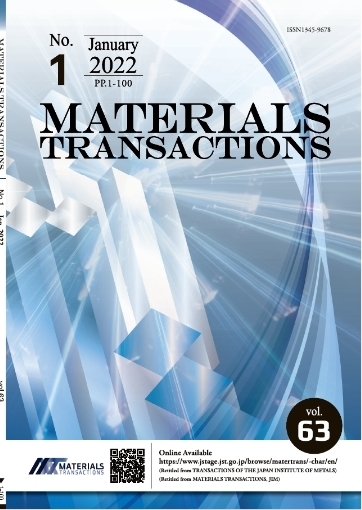Trends of Technological Development of Platinum Group Metal Recycling: Solubilization and Physical Concentration Processes
Yu-ki Taninouchi, Toru H. Okabe
pp. 627-637
Abstract
Spent automobile catalysts are the most important secondary resource for platinum group metals (PGMs), and their recycling is essential not only to ensure a steady supply of PGMs but also to preserve the natural environment. However, several factors limit the efficiency of PGM recovery in current recycling processes. Specifically, PGMs represent a small proportion of the entire catalyst and are difficult to dissolve in aqueous solutions for subsequent separation. In recent decades, multiple technologies have been developed to make the recycling of PGMs more efficient and environmentally-friendly. Herein, we introduce the typical industrial processes for recovering PGMs from spent catalysts, along with established and emerging trends in the technological development of PGM recycling. Furthermore, we review novel recycling techniques for converting PGMs in spent catalysts into more soluble states and/or physically concentrating PGMs from spent catalysts. This Paper was Originally Published in Japanese in J. Japan Inst. Met. Mater. 85 (2021) 294–304.










